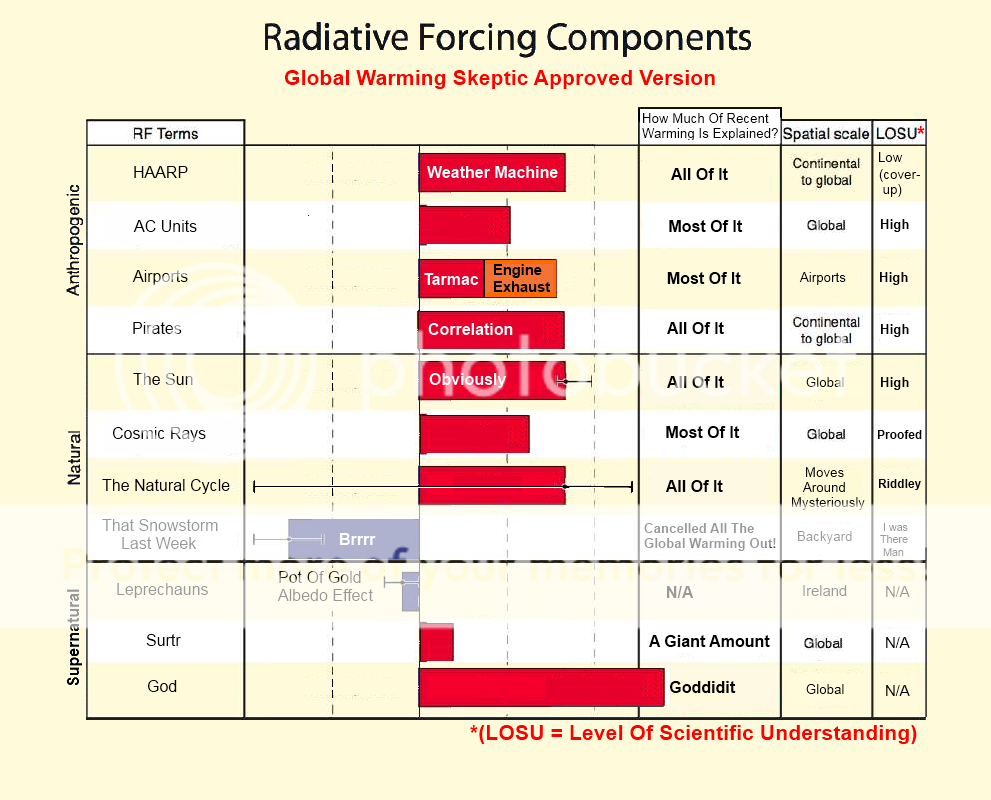So let's apply a little common sense and see how the argument fares.
First, consider that the scientific community has been saying for several years that our understanding of the climate system is quite good. Not perfect, mind you, but good enough that many scientists feel we should be taking action now to reduce our greenhouse-gas emissions. Based on the strength of this conclusion, many politicians have started saying "the science is settled."
Does that sound like a recipe for getting lots of research funding? Saying that we have a pretty good understanding of the climate system?
In fact, it should be obvious that the scientific community would be better off saying we're not sure that climate change is caused by humans: "It might be human-induced, but it might not be. What we really need is more money for models, satellites, and analysis." I can imagine a bipartisan groundswell of support for massive funding of climate science. That's the way to maximize funding. You don't say that the science is settled. You say it's unsettled.
And what would happen if the scientific community said definitively that humans were not to blame? I don't think funding would go down much, for the following reason. The climate is still warming, and if it is not human, then what is it? Obviously, we need to do a lot of research to figure out what is driving the climate, and how the climate will evolve over the next century. Enormous amounts of research on geoengineering and adaptation will be necessary, regardless of whether the cause is human.
So, it doesn't appear that the scientific community has done itself any favors by concluding that humans are responsible for climate change.
It should be clear that, like most skeptical arguments, this one doesn't stand up to an application of common sense.
First, consider that the scientific community has been saying for several years that our understanding of the climate system is quite good. Not perfect, mind you, but good enough that many scientists feel we should be taking action now to reduce our greenhouse-gas emissions. Based on the strength of this conclusion, many politicians have started saying "the science is settled."
Does that sound like a recipe for getting lots of research funding? Saying that we have a pretty good understanding of the climate system?
In fact, it should be obvious that the scientific community would be better off saying we're not sure that climate change is caused by humans: "It might be human-induced, but it might not be. What we really need is more money for models, satellites, and analysis." I can imagine a bipartisan groundswell of support for massive funding of climate science. That's the way to maximize funding. You don't say that the science is settled. You say it's unsettled.
And what would happen if the scientific community said definitively that humans were not to blame? I don't think funding would go down much, for the following reason. The climate is still warming, and if it is not human, then what is it? Obviously, we need to do a lot of research to figure out what is driving the climate, and how the climate will evolve over the next century. Enormous amounts of research on geoengineering and adaptation will be necessary, regardless of whether the cause is human.
So, it doesn't appear that the scientific community has done itself any favors by concluding that humans are responsible for climate change.
It should be clear that, like most skeptical arguments, this one doesn't stand up to an application of common sense.









Leave a comment: